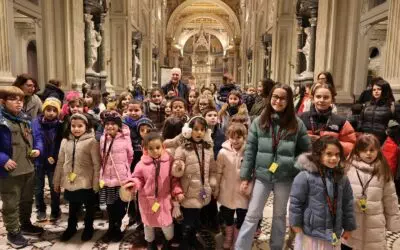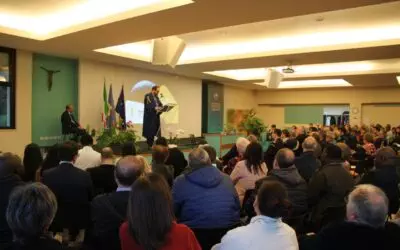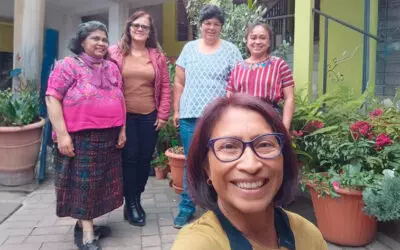 On December 7, 1943, the young teacher, Silvia Lubich, would never have imagined that a few decades later so many personalities from the civil and religious worlds – including four popes – would have spoken quite striking words about her and her spiritual family.
On December 7, 1943, the young teacher, Silvia Lubich, would never have imagined that a few decades later so many personalities from the civil and religious worlds – including four popes – would have spoken quite striking words about her and her spiritual family.
She didn’t have any idea what she would live and see during the 88 years of her life. She didn’t have any idea that millions of people would follow her. She didn’t know that she would reach 182 nations with her ideal.
Could she ever have thought that she would inaugurate a new season of communion in the Church and that she would open channels of ecumenical dialogue that had never before been used?
Much less could she have imagined that her spiritual family would welcome in the faithful of other religions and people without any religious affiliation. Quite the contrary: She never thought of starting a movement.
On that 7th December 1943 Sylvia only had the sentiments of a beautiful young woman in love with her God with whom she was entering into a marriage pact, sealing it with three red carnations. That was all she wanted. Could she have imagined the crowds of people of all ages, race, and background who would follow her on her trips around the world and address her simply as “Chiara” (a name she chose in honour of the beloved saint from Assisi)?
Could she ever have imagined in her small little city of Trent that her mystical intuitions would create a culture of unity for a multi-ethnic, multi-cultural, and multi-religious society? Chiara Lubich was a pioneer of her time. As a lay woman in the Church she had proposed themes and openings that were only later taken up by Vatican II. In a global society she pointed the way to universal brotherhood when no one was speaking of civilizations drawing closer to each other. She respected life and searched for the meaning of suffering. She traced out a way of religious and civil holiness that can be practiced by anyone and not reserved for only a chosen few.
In 1977, at the Eucharistic Congress in Pescara, she stated: “The pen doesn’t know what it must write, the brush doesn’t know what it must paint, and the chisel doesn’t know what it must sculpt. When God takes someone into his hands in order to raise a new work in his Church, the person chosen doesn’t know what she should do. She’s just the instrument. And I think that this might be the case with me.”
And then she adds: “There were so many fruits and such wide spreading that seemed disproportionate to any human planning or effort. There were also many crosses, but also much fruitfulness. The human instruments that God uses generally have a thing or two in common; they’re small and weak. . . As these move in God’s hands, the Lord shapes them through countless joyful and sorrowful means. In this way He renders them more and more suited to the task they are to perform. Until they come to a deep awareness of themselves and an intuition about God that is certainty. With confidence they are able to say: I’m nothing; God is everything. When this adventure began in Trent, Italy, I didn’t have a plan, I knew nothing. The idea of the Movement was in God, and the plan was in Heaven.”
The Focolare Movement began with Chiara Lubich. She was born on 22 January 1920 in Trent, Italy. She died on 14 March 2008 in Rocca di Papa, Italy, surrounded by her people.
The news quickly spread to the members of her spiritual family around the world, who were united in prayer.
In the days that followed thousands of people, from plain working men to political and religious leaders began to arrive in Rocca di Papa to honour her. The funeral was held in the Roman Basilica of St Paul Outside the Walls, but was unable to hold the huge crowd that had arrived (over 40,000 people). Vatican Secretary of State Tarcisio Bertone presided at the Eucharistic Celebration which was con-celebrated by 9 cardinals, 40 bishops and hundreds of priests. Cardinal Bertone read the message sent by Benedict XVI in which the Pope described Chiara as a “Woman of intrepid faith, a meek messenger of hope and peace”.
Some words spoken by Chiara resounded among the crowd: “At the end of time, when the Work of Mary is prepared in its compact unity to appear before the forsaken and risen Jesus, I would like it to be able to say: On your day, my God, I shall come to you. . . . I shall come to you, my God. . . . with my wildest dream come true: to bring you the world in my arms. That all may be one!”




0 Comments